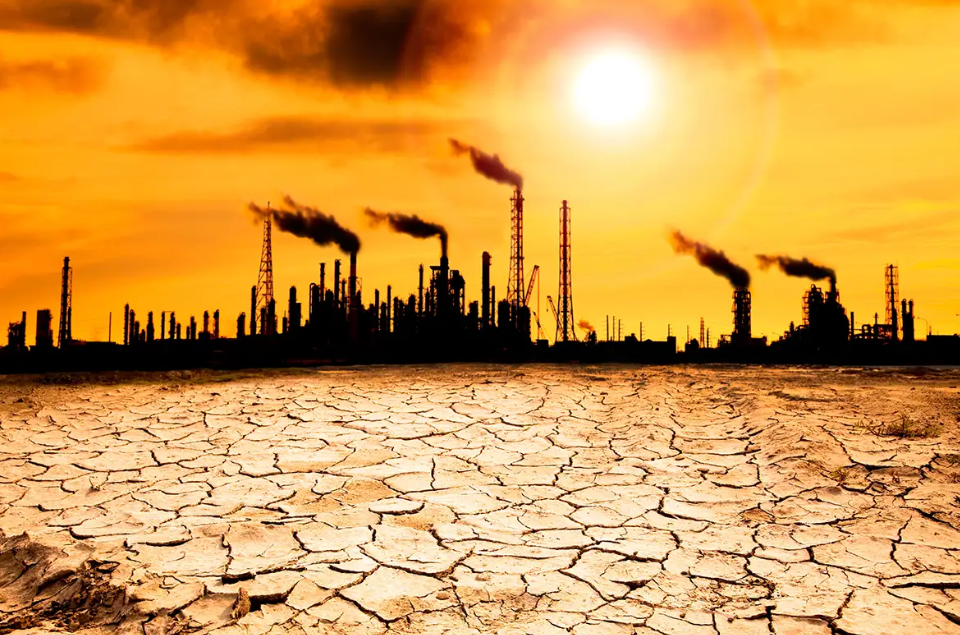
The United Nations said the report should be considered a “red alert to the world”.
Geneva:
The United Nations confirmed on Tuesday that 2023 is set to become the hottest decade on record after global heat records were “broken” last year, with heatwaves sweeping oceans and glaciers suffering record ice losses.
The United Nations World Meteorological Organization has released its annual State of the Climate Report, confirming preliminary data indicating that 2023 will be the hottest year on record so far.
The WMO report said the weather came at the end of “the hottest decade on record.”
UN Secretary-General Antonio Guterres said the report showed “a planet on the edge”.
“The planet is sending out a distress call,” he said, noting that “fossil fuel pollution is causing climate chaos” and warning that “change is accelerating.”
The World Meteorological Organization said average near-surface temperatures last year were 1.45 degrees Celsius above pre-industrial levels, dangerously close to the 1.5 degrees Celsius threshold countries agreed to avoid in the 2015 Paris climate agreement.
WMO President Andrea Celeste Saulo warned in a statement: “We have never been closer… to the 1.5 degrees Celsius lower limit set out in the Paris Agreement.”
– ‘Red Alert’ –
She said the report should be viewed as a “red alert to the world.”
Looking at the data, the organization found that “records are once again being broken, and in some cases broken,” and warned that the numbers “give an ominous new meaning to the term ‘record breaking.'”
Saulo emphasized that climate change is about more than just temperature.
“What we witness in 2023, particularly the unprecedented ocean warming, glacier retreat and loss of Antarctic sea ice, deserves special attention.”
One particularly worrying finding is that average daily marine heat waves last year swept nearly a third of the world’s oceans.
WMO says that by the end of 2023, more than 90% of the ocean will have experienced heat wave conditions at some point during the year.
The report warns that more frequent and intense marine heatwaves will have “profound negative impacts on marine ecosystems and coral reefs”.
At the same time, it warned that the world’s major glaciers were suffering the worst ice losses since records began in 1950 “due to extreme melting in western North America and Europe”.
For example, in Switzerland, where the World Meteorological Organization is headquartered, mountain glaciers have lost 10% of their remaining volume in the past two years alone.
The World Meteorological Organization said Antarctic sea ice extent was also “the lowest ever recorded”.
– Sea-level rise –
In fact, it noted that at the end of the southern winter, its maximum extent was about 1 million square kilometers smaller than in the previous record year, an area equivalent to France and Germany combined.
The WMO said continued ocean warming coupled with rapid melting of glaciers and ice caps also caused sea levels last year to reach their highest point since satellite records began in 1993.
The agency highlighted that the rate of global average sea level rise over the past decade (2014-2023) was more than twice as high as in the first decade of satellite records.
The report emphasizes that dramatic climate change is taking a heavy toll on people around the world, fueling extreme weather events, floods and droughts, triggering displacement, and exacerbating biodiversity loss and food insecurity.
“The climate crisis is the defining challenge facing humanity and is closely linked to the crisis of inequality,” Solow said.
-“Glimmer of hope”-
WMO noted that the number of people considered severely food insecure globally has more than doubled, from 149 million before the Covid-19 pandemic to 333 million by the end of 2023.
However, the United Nations weather and climate agency did highlight one “silver lining”: a surge in renewable energy generation.
Renewable energy generation capacity – mainly from solar, wind and hydropower – increased by nearly 50% last year compared with 2022, the report said.
Guterres also emphasized that the research results also have a positive side.
He insisted the world still had a chance to keep the planet’s long-term temperature rise below 1.5 degrees Celsius and “avoid the worst climate chaos”.
“We know what to do.”
(Except for the headline, this story has not been edited by NDTV staff and is published from a syndicated feed.)
Follow us on Google news ,Twitter , and Join Whatsapp Group of thelocalreport.in













